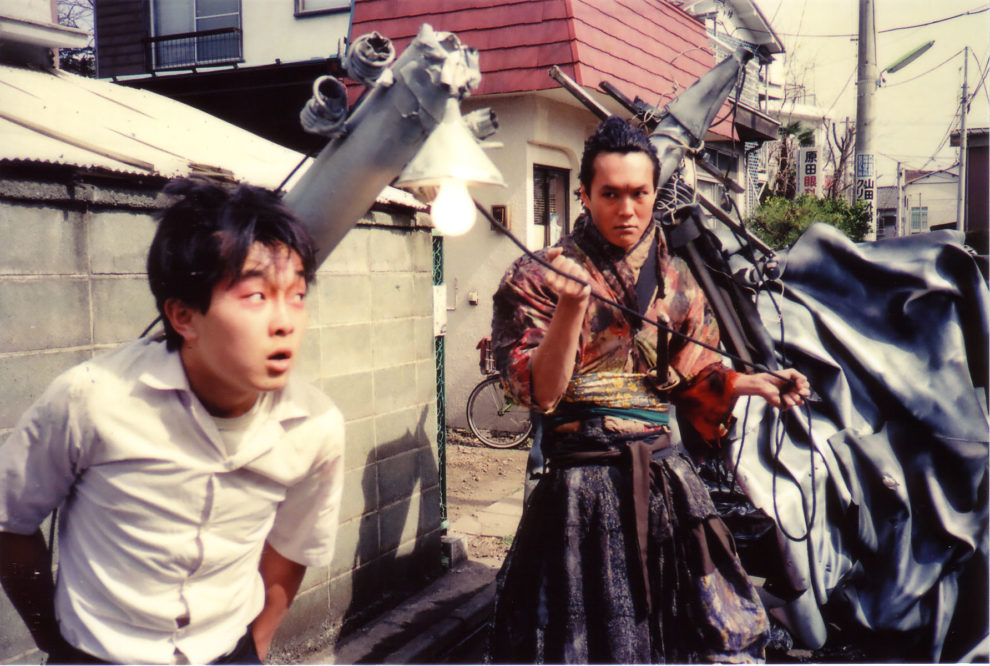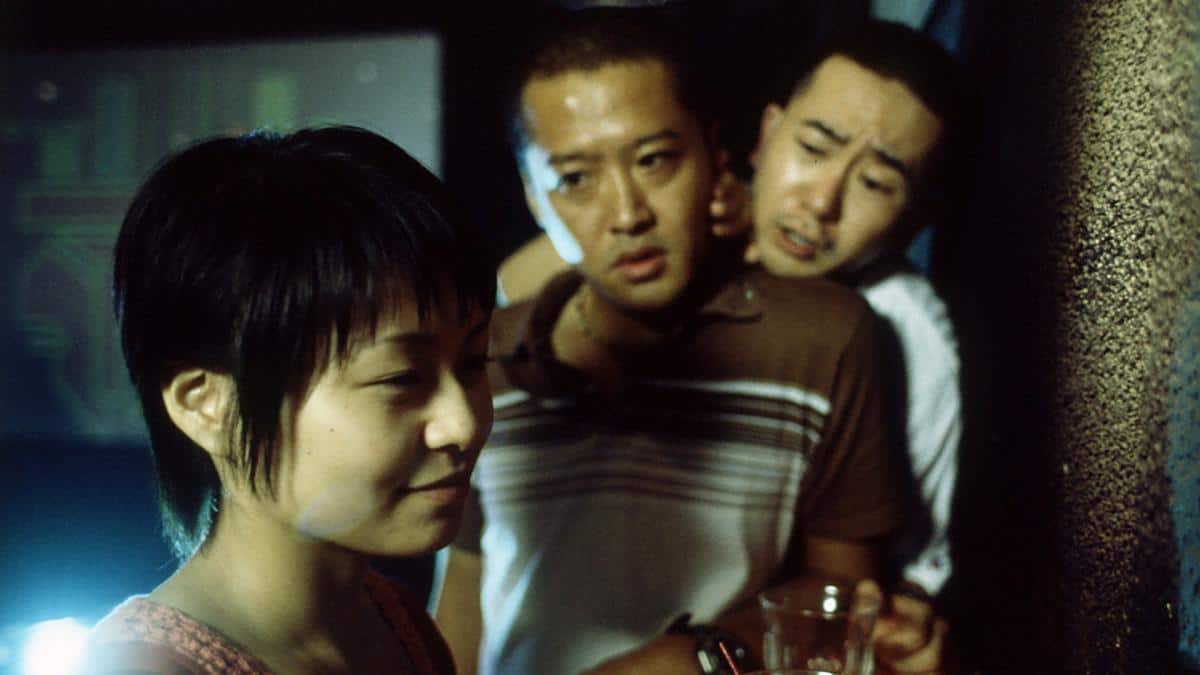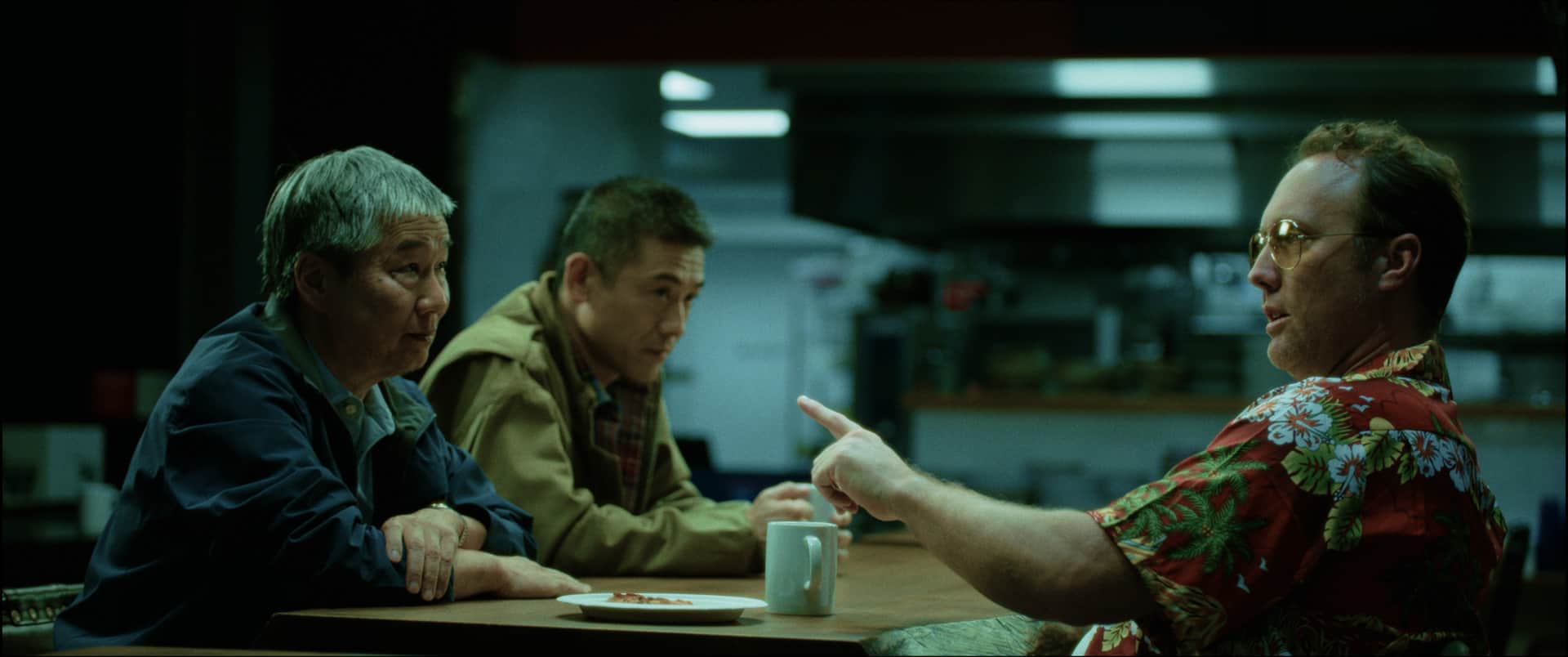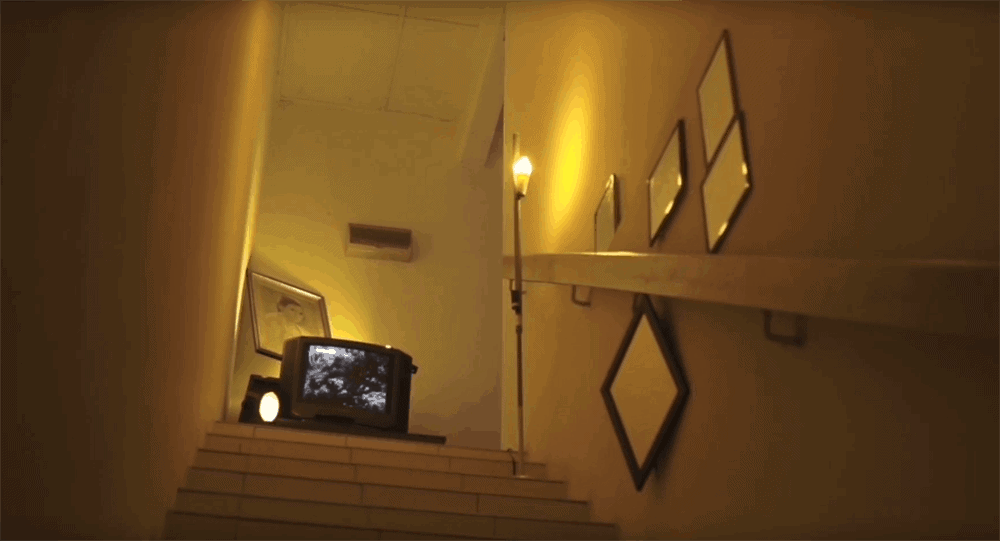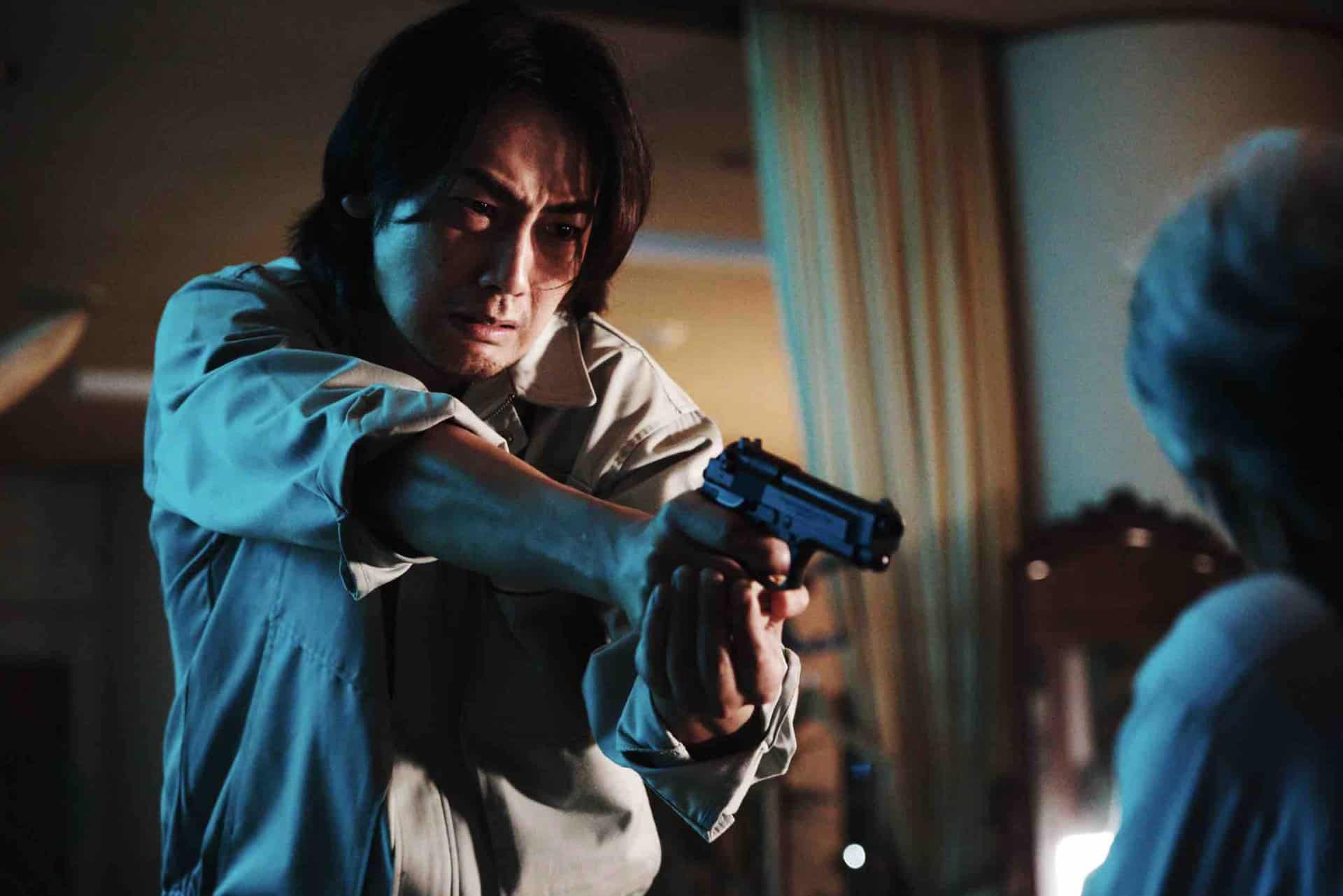Winner of the Grand Prize in PIA Film Festival, “The Adventures of Denchu Kozo” was the film that reinvigorated the career the disappointed Tsukamoto had placed in the background to deal with stage plays, and along “The Phantom of Regular Size”, is a distinct precursor to “Tetsuo“.
Buy This Title
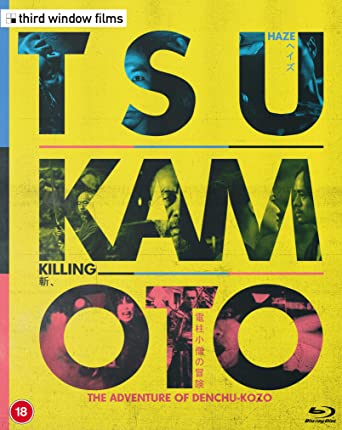
Hikaru is a high school student with a rather unusual deformity: an electric rod (denchu in Japanese) is growing out of his back. His appearance results in him getting bullied by his classmates and is only with the help of Momoko, a girl he has feelings for, that he manages to escape their violence. Eventually, due to an accident with a self-made time machine, he is transferred 25 years in the future, where Japan in being controlled by the Shinshengumi Vampire Gang, whose three members are building a bomb that will bring eternal darkness to a world already on the brink of catastrophe. To build the bomb however, they have to wait for the girl whose life force is feeding it, to reach adulthood. Hikaru, upon his appearance in this hellish setting, knocks the vampires out with his pole, in a series of events that lead him under the care of freedom fighter Ms Sariba (Momoko, 25 years later) who trains him to realize his full potential. As the Electric Rod Boy emerges as a hero that transcends time, Hikaru finds the courage to deal with the three vampire lords on his own.
The extreme editing and the intense manipulation of film speed first appeared here, although Tsukamoto's method was not yet as refined as in “Tetsuo” and his budget significant smaller. The trademark energy and the punk aesthetics, however, permeate the narrative and are the elements that make the movie stand out, particularly through a rhythm that is the outcome of an uncanny combination of image and sound. The same can also be attributed to the various characters, whose conception and implementation derives from a combination of H.R. Giger art and kaiju movies.
Through these elements, Tsukamoto creates an intricately grotesque atmosphere, where extremity seems to be the rule. The sound plays a rather important part in that regard, with the way the vampires suck blood being a distinct sample, and the various, amateurish effects concluding the approach. The perverse eroticism, as exemplified by the character of Eve (played by Kei Fujiwara in the nude) and a freakish sex scene is another important element. Even more impressive is that Tsukamoto manages to include his radical sense of humor in this setting, with the scene where Sariba is playing basketball with a decapitated head being a distinct sample. The motif of the unlikely hero is also here, although Tsukamoto also pushes it to its extremes.
Also noteworthy are the biblical references, with the bomb-girl's name and the minions of the gang being referred as Adam Juniors, as much as the whole apocalyptical story, although the combination of vampires and super heroes brings the concept to an almost blasphemous limit.
It is always a wonder to witness Tsukamoto turning the lack of funds into an opportunity to explore unique methods of shooting film, through a rather raw approach where creativity in all fronts is the rule and “The Adventures of Electric Rod Boy” provides just the opportunity.


